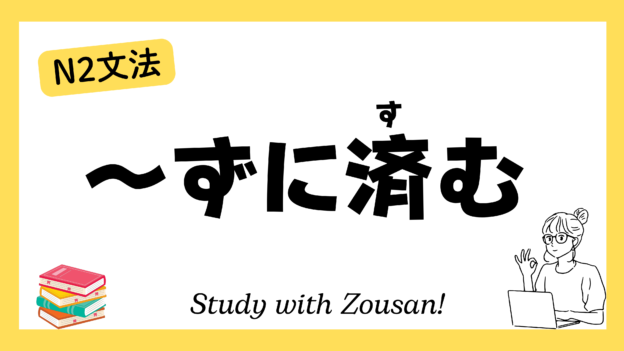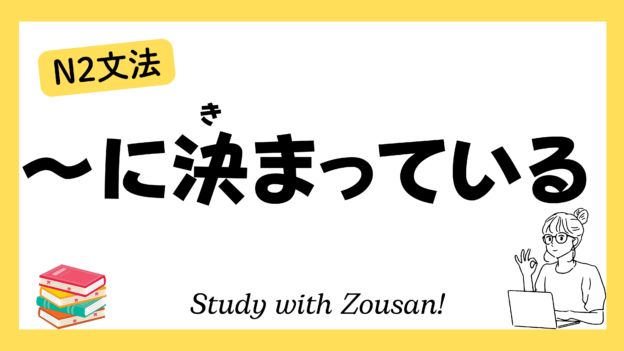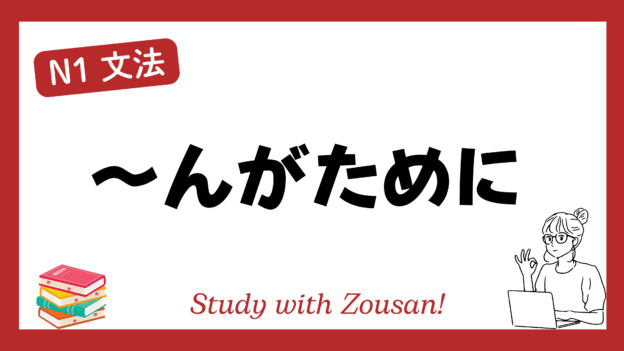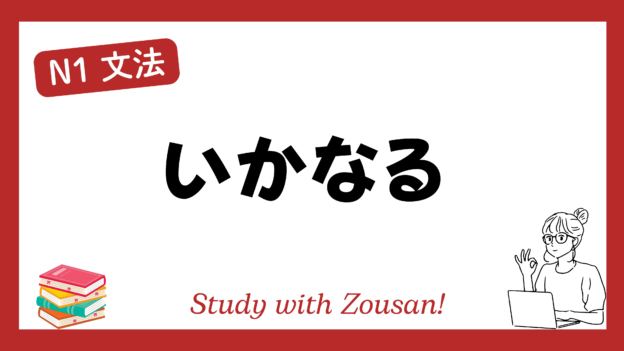N2文法:~ずに済む
Meaning: “Can avoid…” / “Get by without…”
The structure “~ずに済む” is used to express that someone can avoid doing something they initially thought they had to do. It’s often used to convey a sense of relief or gratitude for avoiding an unwanted or unnecessary situation.
※Note:
- “~ずに済む” usually carries a positive nuance, expressing relief or satisfaction at being able to avoid a troublesome or unpleasant action.
- To use this structure, change the verb to its negative form “ない” and then to “~ず” (except for “する” which changes to “せず”).
Structure:
|
Verb ※Exception: する => せずに済む |
Example:
-
-
-
🌟 予想より早く終わったので、残業せずに済んだ。
(よそう より はやく おわった ので、ざんぎょう せず に すんだ)
We finished earlier than expected, so I avoided having to work overtime. -
🌟 友達が手伝ってくれたので、一人でやらずに済んだ。
(ともだち が てつだって くれた ので、ひとり で やらず に すんだ)
Since my friend helped, I didn’t have to do it alone. -
🌟 大雨が降らずに済んで、旅行が楽しめた。
(おおあめ が ふらず に すんで、りょこう が たのしめた)
It didn’t rain heavily, so we were able to enjoy the trip. -
🌟 急いで電車に乗れたので、遅刻せずに済んだ。
(いそいで でんしゃ に のれた ので、ちこく せず に すんだ)
I caught the train in a hurry, so I avoided being late. -
🌟 問題がすぐ解決できて、先生に聞かずに済んだ。
(もんだい が すぐ かいけつ できて、せんせい に きかず に すんだ)
The problem was solved right away, so I didn’t have to ask the teacher. -
🌟 新しい服を買わずに済んだので、お金を節約できた。
(あたらしい ふく を かわず に すんだ ので、おかね を せつやく できた)
I didn’t have to buy new clothes, so I could save money. -
🌟 怪我せずに済んで、本当に良かった。
(けが せず に すんで、ほんとう に よかった)
I’m really glad I avoided getting injured. -
🌟 渋滞がなかったので、長時間待たずに済んだ。
(じゅうたい が なかった ので、ちょうじかん またず に すんだ)
There was no traffic jam, so I didn’t have to wait long. -
🌟 会議が中止になり、行かずに済んで助かった。
(かいぎ が ちゅうし に なり、いかず に すんで たすかった)
The meeting was canceled, so I was relieved I didn’t have to go. -
🌟 薬を飲まずに済んで、自然に治った。
(くすり を のまず に すんで、しぜん に なおった)
I didn’t have to take medicine and recovered naturally.
-
-









